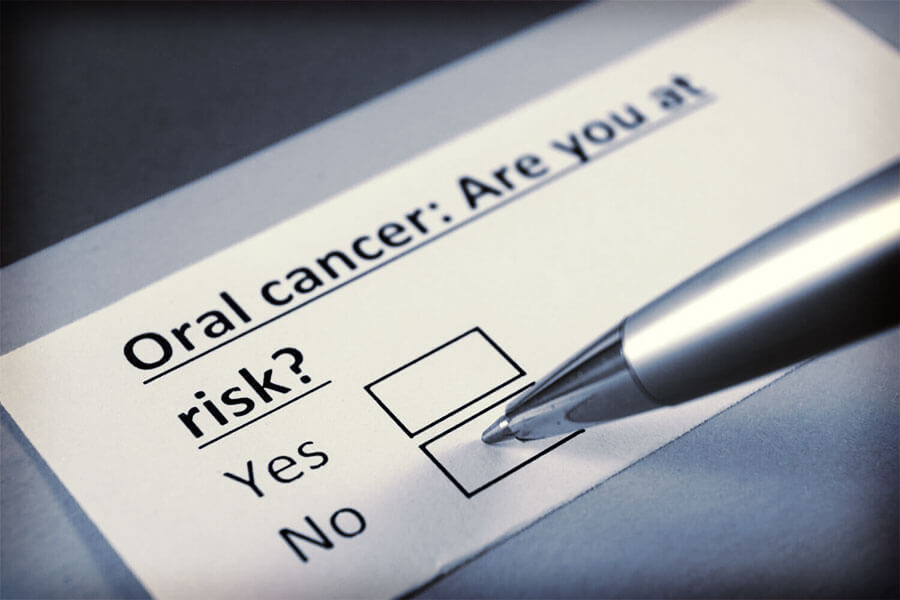April is Oral Cancer Awareness Month
September 3, 2019

April is Oral Cancer Awareness Month. Oral and oralpharyngeal cancer is an aggressive form of cancer and must be identified and treated early for the best chances of survival.
While most forms of cancer have decreased in incidents over the past eight years, oral cancer has experienced an increase. Because it is often diagnosed late, the mortality rate for oral cancer is high. Of 53,000 newly diagnosed individuals, only slightly more than 50% will be alive in five years.
Oral Cancer Screenings
At each visit dentists perform oral cancer screenings to identify any unusual or abnormal oral tissue. If abnormal tissue is found during an oral cancer exam, your dentist may recommend a biopsy. Catching oral cancer in its earliest stages is key to reducing the risk of mortality.
Between dental visits you can also screen for oral cancer by being aware of the signs and symptoms. The American Academy of Oral Medicine discusses the common symptoms listed below that may indicate oral cancer. If you have these symptoms you should consult your dentist.
Symptoms of Oral Cancer
- A sore, or soreness or irritation that doesn’t go away
- Red or white patches, or pain, tenderness or numbness in the mouth or lips
- Lumps, thickening tissues, rough spots, crusty or eroded areas
- Difficult chewing, swallowing, speaking or moving your jaw or tongue
- A chance in the way your teeth fit together when you close your mouth
Oral Cancer Facts
- Oral and oropharyngeal cancer (cancer of the mouth and upper throat) collectively kill nearly one person every hour
- Of the people newly diagnosed with these cancers, 40 percent will not survive longer than five years
- Alcohol and tobacco use are among the most common risk factors for oral and oralpharyngeal cancers
- Oral and oralpharyngeal cancers are found most in people over 45 years old
- While incidents of oral cancer caused by UV rays has decreased in recent years, spending too much time in the sun without protecting your lips is a risk factor